Refrigerator leaking water inside
The puddles of water inside the refrigerator mean that your appliance has a condensation problem.
1. Freezer leaking water
Symptoms: When you open the refrigerator door, you see water pooling on the food shelves or water flowing out from the bottom compartment of the refrigerator.
Causes:
– After washing vegetables and fruits, if you put them directly into the refrigerator without drying them, water will accumulate and drip out.
– Obstructed airflow between the freezer and the refrigerator compartment due to overloading the refrigerator.
– Leaving the refrigerator door open for an extended period or not closing the refrigerator door tightly allows excessive moisture to enter, causing it to condense and drip.
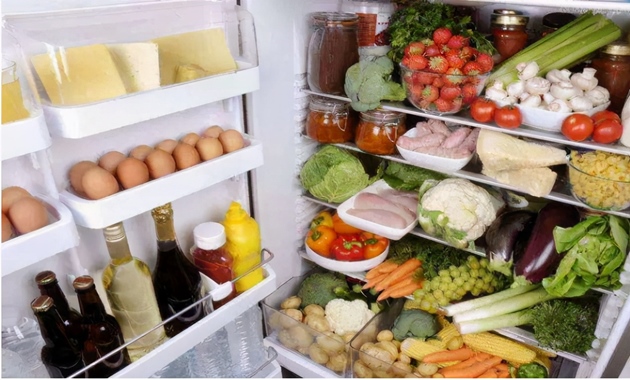
Solutions:
– After washing vegetables and fruits, make sure to dry them completely before putting them into separate compartments. Clean the meats and fish thoroughly, pat them dry, and then place them in covered containers or wrap them in food wrap to prevent water leakage.
– Organize the items in the refrigerator neatly to avoid blocking the airflow.
– Close the refrigerator door tightly and make sure there are no gaps. This not only saves energy but also prevents water from leaking inside.
– Check if the door seal is tight and fits snugly when the refrigerator door is closed. Replace the gasket if necessary to prevent outside moisture from entering and the cool air from escaping, which may cause the refrigerator to run continuously, wasting electricity and damaging the appliance.
2. Freezer leaking water into the refrigerator compartment
Symptoms: Water flows from the freezer compartment when you open the refrigerator door or water from the freezer compartment seeps into the refrigerator compartment through the door gap.
Causes:
– Uneven arrangement of frozen items, blocking the air vents that cool the refrigerator; Overstuffing the freezer compartment can cause overload and prevent proper freezing, leading to water leakage.
– The refrigerator door does not close tightly, and the rubber gasket does not seal properly, causing gaps that allow humid air to enter and condense, resulting in water leakage.
– Ice buildup around the freezer compartment, when there is a power outage or a temporary interruption, the frost melts and overflows into the freezer compartment.
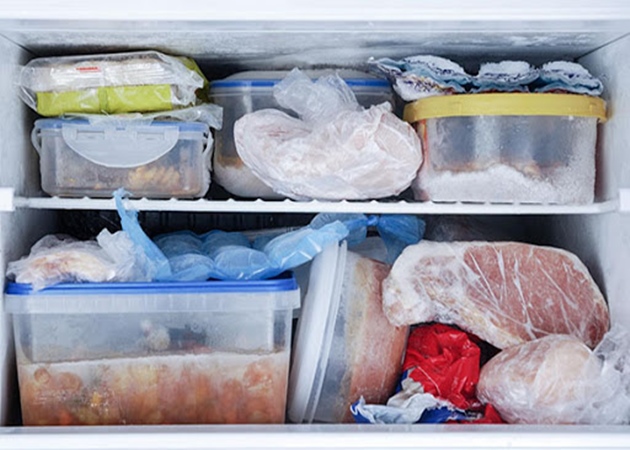
Solutions:
– Store the appropriate amount of frozen items in the freezer, and do not block the air vents. Increase the cooling and freezing capacity if you put more food in the freezer compartment.
– Close the refrigerator door tightly to prevent the entry of moist air. Also, it saves energy because the refrigerator does not need to run continuously. Replace the rubber gasket on the refrigerator door if necessary.
– Regularly clean to prevent frost buildup in the freezer compartment and maintain cleanliness.
3. Water leaking from the refrigerator base
Symptoms:Water flows from the base of the refrigerator and spreads onto the floor.
Causes: The water drain tube that prevents the condensation of the refrigerator may be clogged, bent, or broken, preventing water from draining and causing it to overflow.
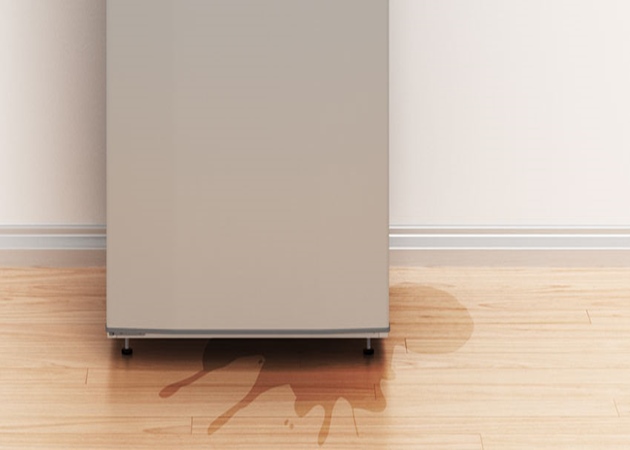
Solutions:
– Turn off the power of the refrigerator to ensure safety during repair.
– Remove the water tray located at the back of the refrigerator, at the base, and find the water drain tube. Check if the tube is bent, clogged, or punctured.
– Check if the drip tray is cracked or has any punctures. Replace the drip tray if necessary.
– If you cannot fix the refrigerator leak, call a technician to inspect and repair it.
Tips for using the refrigerator correctly and efficiently
1. Place the refrigerator in a well-ventilated and dry area
Place the refrigerator in a well-ventilated area, away from heat sources such as the gas stove and continuous sunlight. Leave at least a 10cm gap between the refrigerator and the wall to ensure proper ventilation and heat dissipation.
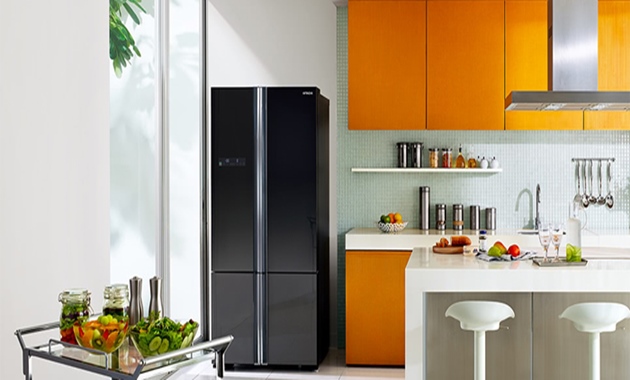
2. Keep the refrigerator clean
Regularly clean the refrigerator to limit bacteria, mold, and unpleasant odors, which can affect the quality and freshness of the stored food.
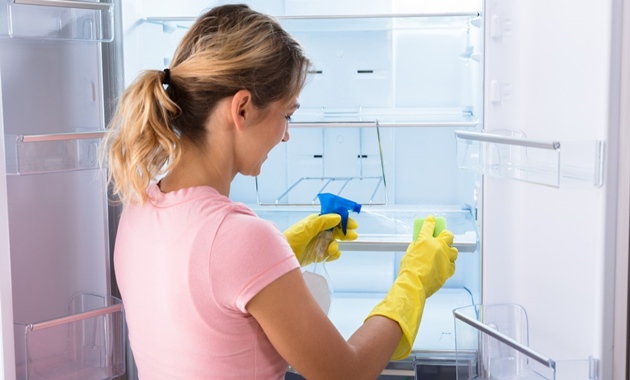
3. Organize the items properly
– Freezer compartment: Store fresh perishable items that you need to use in the long term, such as fish, meat, and seafood, in separate compartments. Also, place ice cream, ice cubes, and yogurt in separate compartments to ensure food safety.
– Refrigerator compartments: Clearly divide and organize the items according to the symbols on the refrigerator shelves. Arrange similar types of food together to optimize cooling efficiency, extend the shelf life, and preserve the flavors.
– Do not put hot food directly into the refrigerator. Let it cool completely.
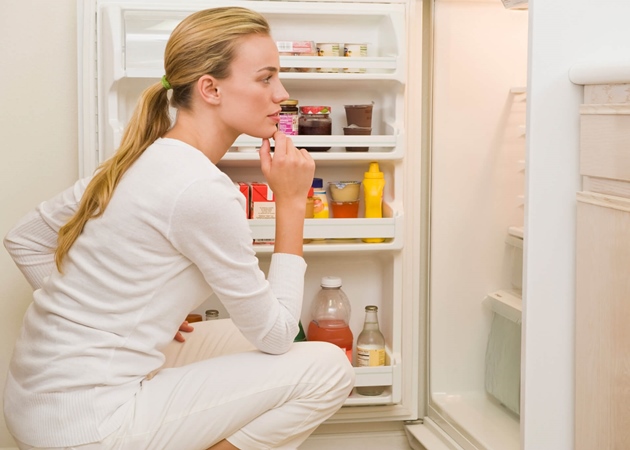
4. Set the appropriate temperature
Set the temperature level according to the types of food stored in each compartment to avoid wasting energy.
Lower the temperature level when you store more items that require freezing to cool them quickly and prevent water leakage. When there are fewer items, adjust the cooling power accordingly to save energy.
5. Limit frequent opening and closing of the refrigerator door
Each time you open the refrigerator door, a significant amount of cold air escapes, and the refrigerator needs to consume more electricity to cool down again. Therefore, avoid keeping the refrigerator door open for too long and make sure to close it tightly.
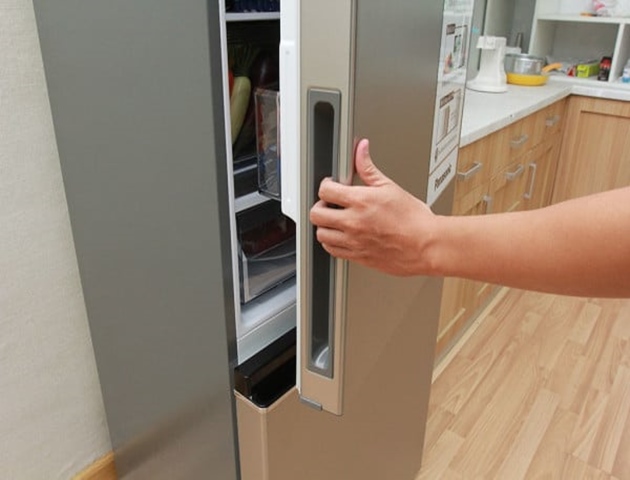
6. Limit turning on/off the refrigerator
The refrigerator requires a considerable amount of energy to restore the temperature to the initial setting if it is turned on and off frequently. If you do not use the refrigerator for a long time, unplug it, clean it thoroughly, and occasionally plug it back in to prevent any damage to the refrigerator.
































